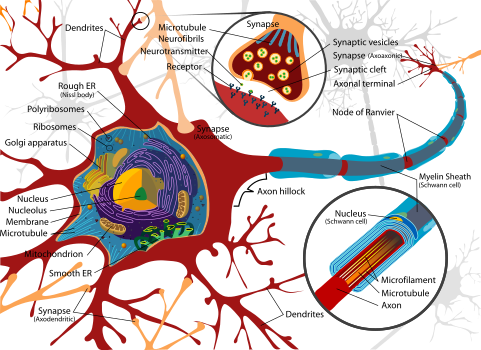- MBTI
- INFP
- Enneagram
- 5w4
In neuroscience, long-term potentiation (LTP) is a long-lasting enhancement in signal transmission between two neurons that results from stimulating them synchronously.[2] It is one of several phenomena underlying synaptic plasticity, the ability of chemical synapses to change their strength. As memories are thought to be encoded by modification of synaptic strength,[3] LTP is widely considered one of the major cellular mechanisms that underlies learning and memory.[2][3]
Cells that fire together, wire together. Has anyone done much research on plasticity/neuroscience? I find the concept fascinating.

